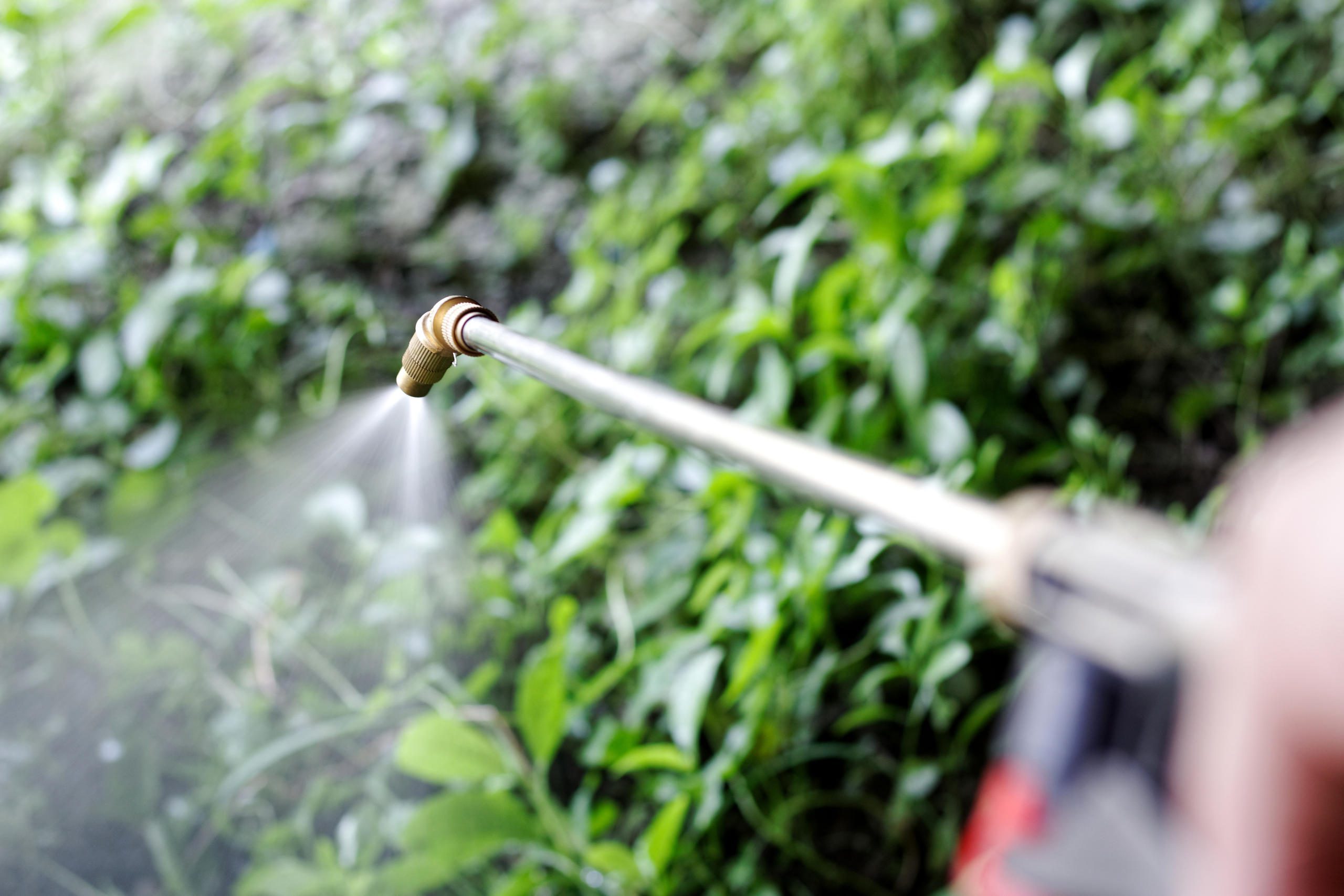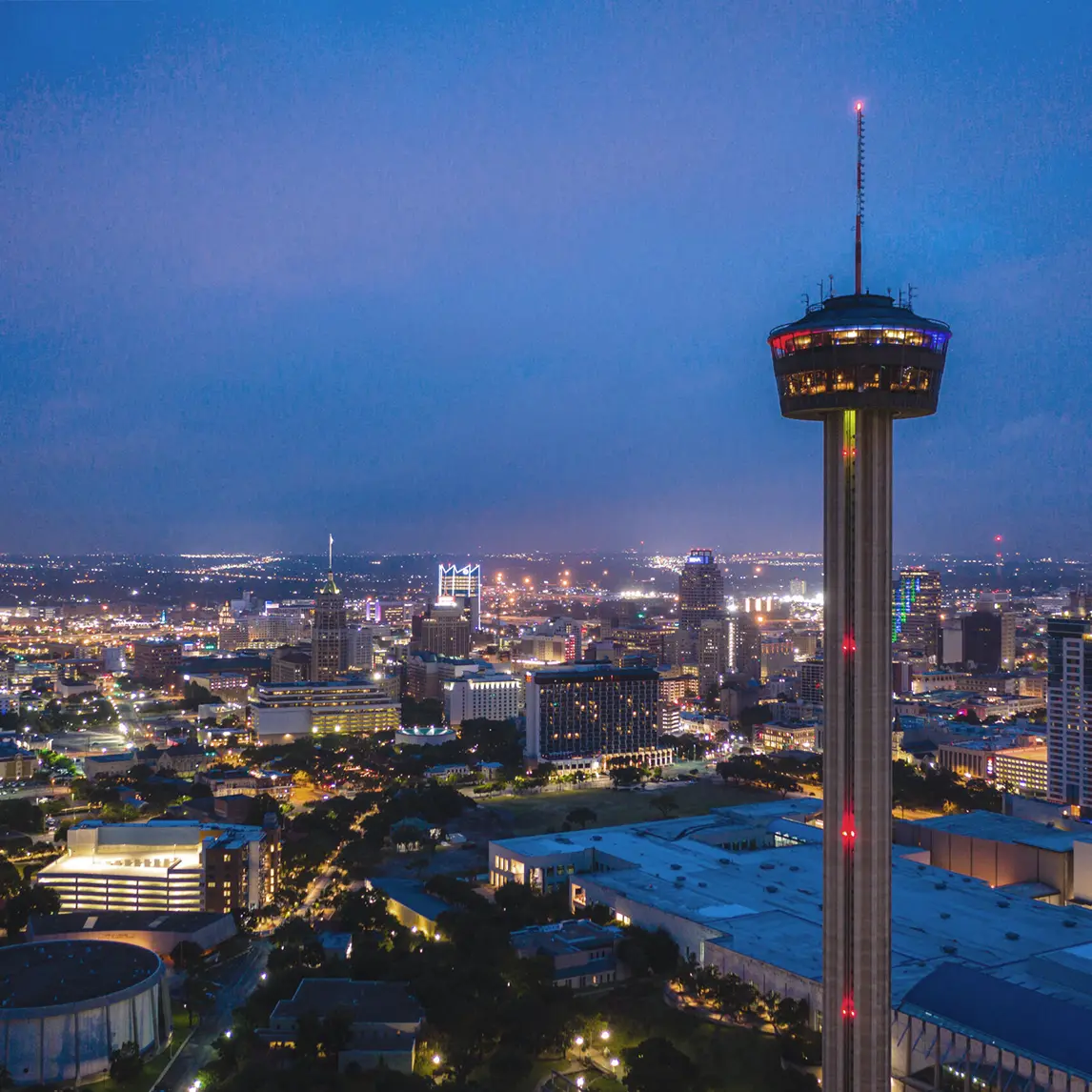Texas Monsanto Roundup Cancer Lawsuits and Lawyers
Serving Clients Nationwide From Our Texas Offices in Corpus Christi, San Antonio, Austin, and Dallas

Research and thousands of lawsuits suggest Monsanto’s Roundup weed killer is associated with an increased risk of certain types of cancer. So far, plaintiffs have been awarded about $11 billion. If you have been exposed to Monsanto’s Roundup and developed cancer, contact the lawsuit lawyers at Thomas J. Henry in Texas for your free consultation.
The History of Monsanto’s Roundup Weed Killer
In 1970, Monsanto developed glyphosate to kill weeds and grasses that hinder crop growth. They marketed the chemical as roundup weed killer, and by 2007, it had become the most widely used herbicide in the United States with an estimated 1.4 billion pounds being used in more than 160 countries every year.
The herbicide became especially popular with the introduction of genetically modified organisms (gm os) that are resistant to glyphosate, including corn, cotton, and soybeans. These glyphosate-resistant or “roundup-ready” plants aided farmers by allowing them to spray their fields with weed-killing herbicides without destroying their crops.
Cancers Associated with Monsanto’s Roundup
Despite its widespread use, the safety of monsanto’s roundup has been debated for several years. Thousands of lawsuits have been filed alleging that people have developed many types of blood cancers after using the product, including:
- Anaplastic large t-cell lymphoma
- Follicular b-cell lymphoma
- Mediastinal b-cell lymphoma
- Large b-cell non-hodgkin’s lymphoma (nhl)
- Mantle cell lymphoma
- High-grade mature b-cell lymphoma
- Hairy cell leukemia
- Acute t-cell lymphoblastic lymphoma
- Thymic lymphoma
- Chronic lymphocytic leukemia
Studies on Monsanto Cancer Risks
Studies conducted to discover cancer risks associated with roundup have produced conflicting results.
In 2015, the International Agency for Research on Cancer (IARC) released an investigation in which they researched the safety of five pesticides on the market to determine if they were carcinogenic. Glyphosate was among the pesticides analyzed during this investigation.
The results revealed that glyphosate is “probably carcinogenic to humans,” based on convincing evidence that the pesticide had created tumors and cancer in laboratory animals. Particularly, the IARC found that exposure to glyphosate led to non-hodgkin lymphoma, leukemia, b-cell lymphoma, and multiple myeloma.
The U.S. Environmental Protection Agency (EPA) had also labeled glyphosate as a probable human carcinogen back in 1995 but later changed their beliefs, arguing in 2017 that the pesticide is not toxic to humans or animals. Monsanto’s representatives also argue that their herbicide poses no cancer threat.
With studies producing conflicting results, it is hard to determine whether glyphosate can truly cause cancer, but the number of lawsuits filed as a result of the issue are telling.
According to Bayer’s 2019 half-year financial report, approximately 18,400 cancer patients and their families have filed lawsuits against Monsanto, claiming the company has been aware of the potential dangers of glyphosate and failed to properly warn consumers. Nonetheless, Monsanto refutes these claims.
Recent Monsanto Verdicts
As of summer 2022, Monsanto/Bayer have paid about $11 billion to settle nearly 100,000 roundup cancer lawsuits in Texas and nationwide. Major milestone cases include:
- Johnson v Monsanto (August 2018) — The 46-year-old plaintiff was awarded $289.2 million, including $250 million in punitive damages, after being diagnosed with non-hodgkin’s lymphoma with large cell transformation. He had been using roundup products on the school properties where he worked as a groundskeeper for many years. Though the jury had initially awarded $289 million, the judge later capped the punitive damage award, reducing the total verdict to $78.5 million.
- Hardeman v Monsanto (February 2019) — $80.2 million. The plaintiff, a 70-year-old male from sonoma county, california, was awarded $80 million, including $75 million in punitive damages, in 2015 after he was diagnosed with non-hodgkin lymphoma. This was the first federal court case from the roundup mdl to go to trial. The plaintiff and his wife lived on 56 acres that were once used as an exotic animal refuge. The plaintiff had been using roundup products to treat poison oak, weeds, and overgrowth on his property from 1980 until 2012
- Pilliod v Monsanto (May 2019) — $2.055 billion. The plaintiff living in livermore, california, was awarded a staggering verdict of $2,055,206,173, which included $2 billion in punitive damages, after he developed large b-cell non-hodgkin lymphoma and his wife was diagnosed with central nervous system lymphoma which later progressed to nhl. both the plaintiff and his wife had been using roundup products regularly around their home and occasionally at other properties.
Was Your Cancer Caused by Monsanto Roundup?
If you or a loved one have suffered an injury or illness due to a defective or dangerous product, contact Thomas J. Henry. Over two decades of experience handling a multitude of defective product cases and extensive legal and financial resources allow us to provide our clients with truly dynamic legal representation. Thomas J. Henry has a proven track record of achieving real results for clients devastated by recalled products.
Let us help you recover the compensation you are entitled to. our firm has offices in Corpus Christi, San Antonio, Austin, Dallas, and Houston, serving clients across Texas and nationwide. Contact us today for a free case review.
Contact us for a free case review
Your questions
answered
We have straight answers to difficult questions to help you make critical decisions, navigate legal process and help you get justice.
Following an accident, there are always more questions than answers. At Thomas J. Henry, we’re here to answer any questions you have about your injury case.
How Does the “No Win No Fee” Promise Work?
The Thomas J. Henry “No Win No Fee” promise works as part of a contingency fee agreement. Instead of receiving payments from clients, we recoup fees and expenses from the final settlement or verdict our clients receive.
This allows us to start working on your case as soon as you hire us, ensuring that your case is handled with the urgency it deserves. It also means you can focus on getting better rather than cutting us a check.
The percentage we collect may vary depending on the complexity of your case, but you will be kept informed so you know what we are collecting before your case is closed.
Even better, you owe us nothing if we don’t win your case! Because our fees are collected as a percentage of your settlement or verdict, we do not collect anything unless and until you get your recovery. This means there is no risk to hiring a qualified attorney to handle your case!
Do I Have to Pay to Speak with an Injury Attorney?
Thomas J. Henry Law offers free case reviews so that you can better understand your legal options. This means you pay nothing for your first consultation. Additionally, Thomas J. Henry Law works on a contingency fee basis meaning that if you do choose to hire us, you pay us nothing unless and until we win your case.
To learn more about what it takes to speak with an injury attorney about your claim here.
Do I Need a Personal Injury Attorney Help Me Settle My Case?
Insurance companies will attempt to pay out as little as possible when resolving an injury claim. When an individual pursues compensation from an insurance company without the aid of an attorney, the insurance company may see the lack of representation as an opportunity to lowball the injured victim as there is no immediate risk of trial or legal recourse.
By hiring a competent attorney who has a reputation for achieving large verdicts in the courtroom, you are sending a message to the insurer. It will provide the insurance company with extra incentive to offer a fair settlement the first time.
If that first offer is not fair, an experienced personal attorney will have the resources and the knowledge to negotiate with the insurance company in pursuit of a better offer.
What is a Contingency Fee?
In a contingency fee arrangement, an attorney agrees to accept a fixed percentage of your recovery as payment. This means that if you win your case, your attorney will collect their fees and expenses from the money awarded to you. However, if you lose your case, your attorney will collect nothing.
Most lawyers prefer not to work on contingency cases for two reasons:
- There is a risk the firm will be paid nothing
- Any payment is delayed until money is collected from the opposing party
Generally, a lawyer who accepts contingency fee cases:
- Regularly represents clients who lack the financial resources to pay hourly attorney’s fees (as is often the case for personal injury victims).
- Is more selective about the cases they accept.
- Is very confident in their ability to win the cases they choose to handle.
How Much Does it Cost to Hire a Personal Injury Attorney?
The cost associated with hiring a personal injury attorney and how payment is collected may vary from firm to firm. At Thomas J. Henry, we work on a contingency fee basis. This means that we don’t charge our clients a penny unless and until we win their case.
Working on a contingency fee basis allows clients access to resources and legal representation they might otherwise struggle to afford. The more serious a case is, the more money it costs to take to trial. This is because complex litigation tends to take longer to resolve and the entities involved fight harder.
This is especially true if your lawsuit is against a large company, as would be the case in a trucking accident or on-the-job injury. Such companies employ teams of lawyers and have seemingly unlimited financial resources. You need an attorney who has the same. Thomas J. Henry employs a team of more than 100 attorneys and has the money to fight your case out to the end.
Finally, by collecting any fees and expenses after a verdict or settlement is secured, Thomas J. Henry can help ensure his clients are able to focus on healing. “The client’s job is to heal. We will handle the rest,” says Thomas J. Henry.
How Much Is My Personal Injury Case Worth?
In Texas, a personal injury case is only worth what a jury is willing to award you. This is why you need an attorney who can not only prove the economic damages you have sustained due to your accident, but can also demonstrate the value of non-economic damages you may have sustained, such as pain and suffering, mental anguish, and loss of consortium.
Learn more about how to estimate the value of your personal injury claim here.
Why
choose
us?
We help clients across the U.S. with all types of injury cases, including vehicle accidents, slip and falls, wrongful death, product recalls, pharmaceutical cases, mass tort, and more.
Thomas J. Henry offers a “No Fee Promise.” We work on a contingency fee basis which means you do not pay our firm any fees unless and until we win your case. Learn more.
If you’ve been hurt, you may have a damaged vehicle or be unable to work. We can help get you a rental car if your vehicle is damaged and even advance money on qualified cases.
We are committed to your complete recovery. We will work with you to ensure you receive the necessary medical treatment and support for your healing journey.
If you’ve been hurt, you may not be able to come into our offices to speak to an attorney. Don’t worry, we will come to you wherever you are – at home, work, or hospital.
Our locations
LocationsCustomer
Reviews

Los abogados de Thomas J Henry son personas muy amables y gracias a ellos mi caso se resolvió muy pronto y con buenos resultados.


Five stars are not enough to express the professional qualities and dedication this firm has to their clients.


Thomas J. Henry is a wonderful company they really take care of their clients, and their employees are really nice as well.


When I had my car accident I didn’t know who to call. I got pointed in the right direction from a good person I know. I appreciate everything my legal team did for me.


I highly recommend TJH for any personal injury case.


I had a great experience! Me and my daughter got in a car accident 2023 and they were able to reach a settlement for us. My favorite aspect was the communication and how much they care. Highly recommend!


Muy buena experiencia contados las personas. Y con los traductores.


Our family worked with Thomas J. Henry Law after a major car accident, and we’re truly grateful for their support. The team was responsive, patient, and thorough every step of the way.

Blog



















